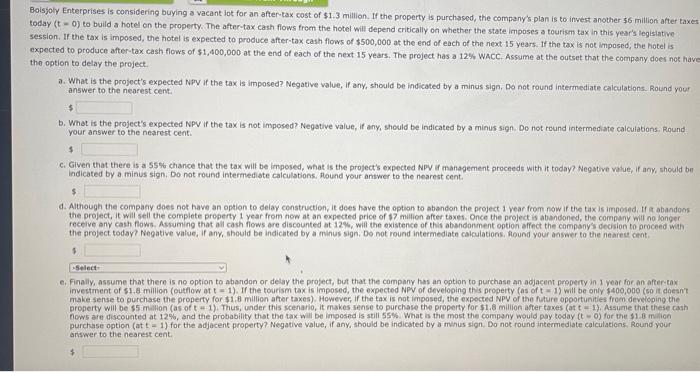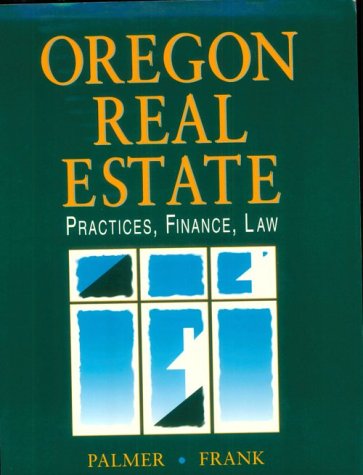Boisjoly Enterprises is considering buying a vacant lot for an after-tax cost of $1.3 million. If the property is purchased, the company's plan is to invest another $6 million atter taxe today (t=0) to build a hotel on the property. The after-tax cash flows from the hotel will depend critically on whether the state imposes a tourism tax in this year's legislative session, If the tax is imposed, the hotel is expected to produce after-tax cash flows of $500,000 at the end of each of the next if years. If the tax is not imposed, the hotel is expected to produce after-tax cash flows of $1,400,000 at the end of each of the next 15 years. The project has a 12% WACC. Assume at the outset that the company does not hav the option to delay the project. a. What is the project's expected NFV if the tax is imposed? Negative value, if any, should be indicated by a minus sign, Do not round intermediate calculations. Round your answer to the nearest cent. s. b. What is the project's expected NPV if the tax is not imposed? Negative value, if any, should be indicated by a minus sign. Do not round intermediate calculations. Round your answer to the nearest cent. 3 c. Given that there is a 55% chance that the tax will be imposed, what is the project's expected NPV if managernent proceeds with it today? Negative value, if ary, should be indicated by a minus sign. Do not round intermediate calculstions. Rlound your answer to the nearest cent. \$. d. Although the company does not have an option to delay construction; it dees have the option to abandon the project 1 vear from now if the tax is imposed, If a abandons the project, it will sell the complete property 1 year from now at an expected price of $7 milion after taxes. Once the project is abandoned, the company will no langer recelve any cash fows. Assuming that all cash flows are discounted at 12%, will the oxistence of this absidonment option effect the company's decision to proceed with the groject today? Nogative value, If any, should be indicated by a minus sign, Do not round intermediatn calculations. flound your answer to the neares cent. e. Finally, assume that there is no option to abandon or delay the project, but that the company has an option to purchase an adjacem property in 1 year for an after-tax. investment of $1.8 million (outflow at t=1 ). If the tourism tax is imposed, the expected NPV of developing this property (as of t=1 ) will be oniy $400, ono (so it doesant make sense to purchase the property for $1,8 million after taxes). However, if the tax is not imposed, the expected NPV of the future opportunifies from developing the property will be $5 mallion (as of t. - 1). Thus, under this scenario, it makes sense to purchase the property for $1.8 million after taxes (at t=1 ). Assume that these cash purchase option (at t=1 ) for the adjacent property? Negative value, if any, should be indicated by a minus sign. Do not round intermediate calculations, Round your answer to the nearest cent. $







